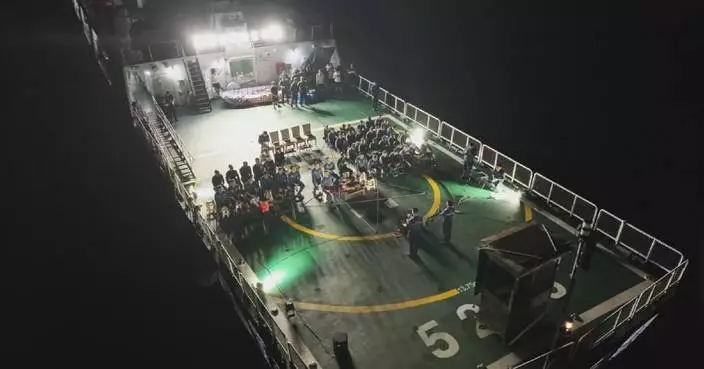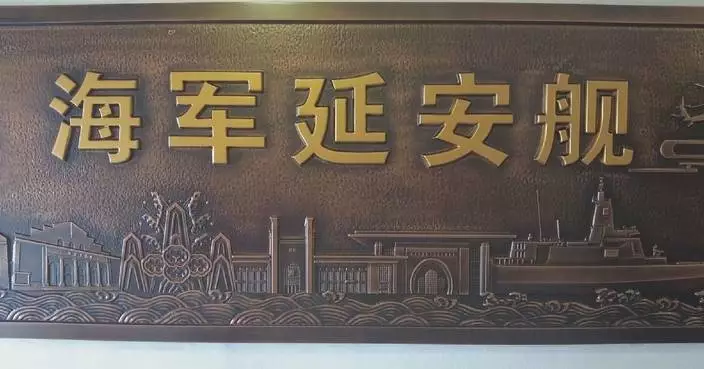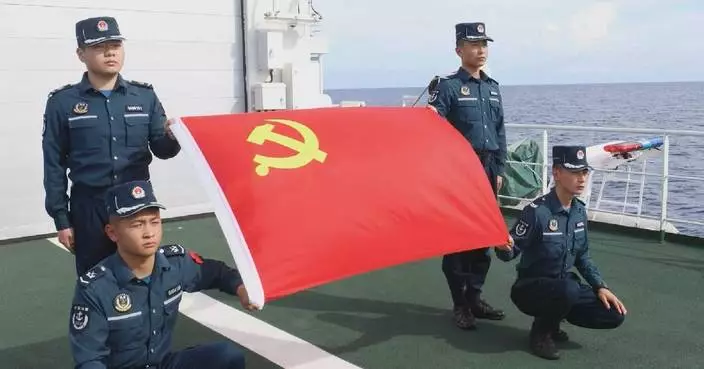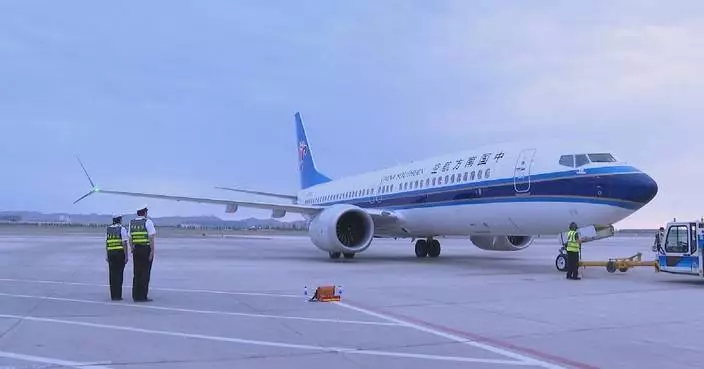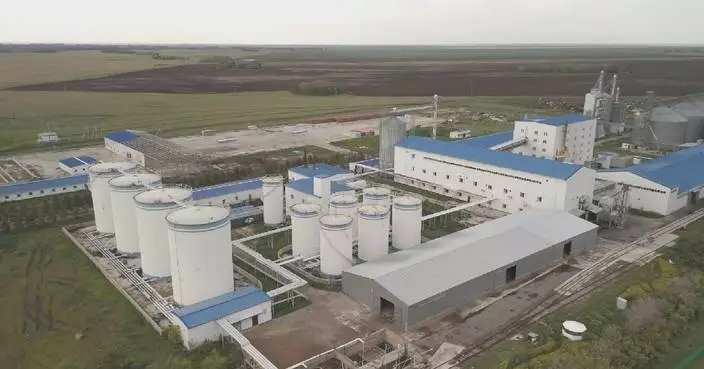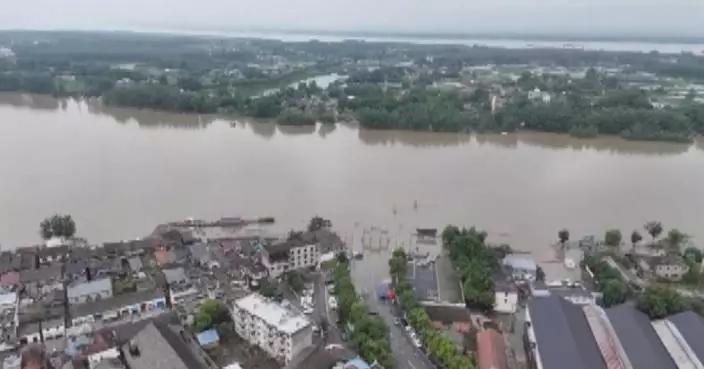An exhibition featuring 265 pieces of relics from the Sanxingdui Ruins and Jinsha Site, both located in southwest China's Sichuan Province, opened in the Grand Canal Museum of Beijing Thursday.
The exhibition themed "Unveiling Sanxingdui and Jinsha of Ancient Shu Civilization" has attracted flocks of visitors since the very first day.
Altogether, 12 museums and institutes, including the Capital Museum, Sanxingdui Museum, and Jinsha Site Museum, have contributed relics to the exhibition.
By discovering, interpreting, and defining the ancient Shu civilization, the event helps reveal the civilization's significance and unique value in the development of Chinese civilization.
"Nearly 50 percent of the relics on display this time come from Pit Six recently discovered in the Sanxingdui Ruins. The Sanxingdui ancient Shu civilization proves that the Chinese civilization is a diverse unity and can help tell China's stories well," said Yu Jian, deputy director of the Sanxingdui Museum.
The Sanxingdui Ruins are located in the city of Guanghan, around 38 km from Chengdu, capital of southwest China’s Sichuan Province. They are believed to be remnants of the Shu Kingdom which can be dated back 2,600 years to 4,800 years. Jinsha is an archaeological site, which is located in the northwest city proper of Chengdu. It is the central site following Sanxingdui Civilization, and the ruin land of the capital city of the ancient State of Shu.
The exhibition will run until October 10, with a VR immersive show coming soon.
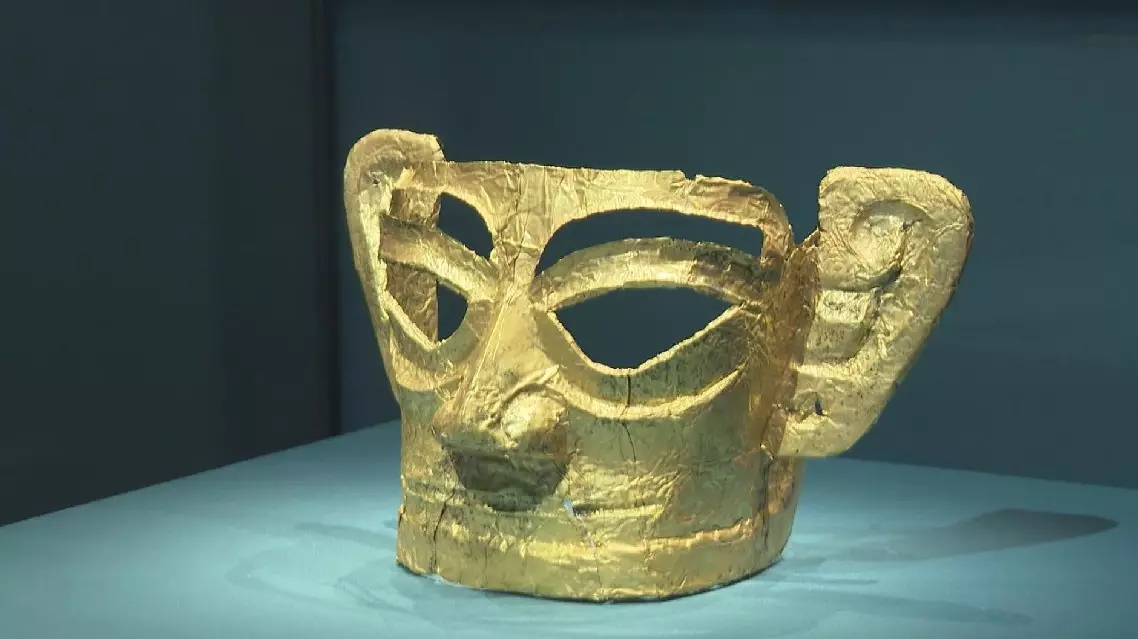
Over 200 relics of ancient Shu civilization showcased in Beijing
A delegation from the Taliban-led Afghan government is currently in Doha to attend the third round of UN-convened talks on Afghanistan scheduled for Sunday to Monday, hoping to take it as an opportunity to foster understanding between their government and the wider international community.
Key issues on the meeting's agenda include frozen Afghan assets and the Taliban's counter-narcotics policies.
Zabihullah Mujahid, chief spokesperson for the caretaker government, led a six-member delegation to the meeting. Before heading to Doha, he briefed the media on Saturday about his government's approach toward the gathering.
Answering a question from China Global Television Network (CGTN), Mujahid outlined the state of his country's ties with the rest of the world, including some Western countries.
"We don't have problems with all of the world, but we want to reach a solution and maintain mutual understanding with some countries that have been pursuing obsessive policies toward Afghanistan. Afghanistan has faced financial challenges, and its business affairs have been impacted by the sanctions that have been imposed. This needs to be addressed," he said.
A group of Afghan activists from diverse backgrounds, mostly based in the country, wrote an open letter on Sunday to the Secretary-General of the United Nations, Special Envoys for Afghanistan, and the Interim Taliban Administration.
The letter addresses key concerns regarding Afghanistan's current socio-economic and political landscape under the Taliban-led government. It highlights severe economic challenges, exacerbated by international actions such as funding cuts and banking restrictions, alongside internal Taliban policies hindering the economic participation of women and educational opportunities for girls.
The activists urge participants of the third Doha meeting to increase aid to the Afghan people, pave the way for unfreezing the Afghanistan Central Bank's assets, and assist Afghan businesses and women.
"I think Afghanistan really deserves right now a chance to be reconnected to the world, to be reintegrated into the international community's framework and to be able to do business with the rest of the world just like any other country. And I think it's an absolute right of the Afghan people, regardless of any other political agendas or issues that we have in Afghanistan," said Muhammad Sulaiman Bin Shah, founder and CEO of Catalysts Afghanistan.
Kabul residents urge both the Taliban and international community to pay attention to the needs of the Afghan people and avoid confusing humanitarian with political issues.
"As we all know, the political and economic situation of Afghanistan is not leading to progress due to Afghanistan's frozen assets. I urge the international community to find a solution at this meeting, and unfreeze Afghan money," said Mushtaba Atayi, a Kabul resident.
"We want the Taliban-led government to reopen schools and universities for sisters, based on Islamic law, and provide the educational environment for them. That would be a very good step," another resident Asimullah Hamdard said.
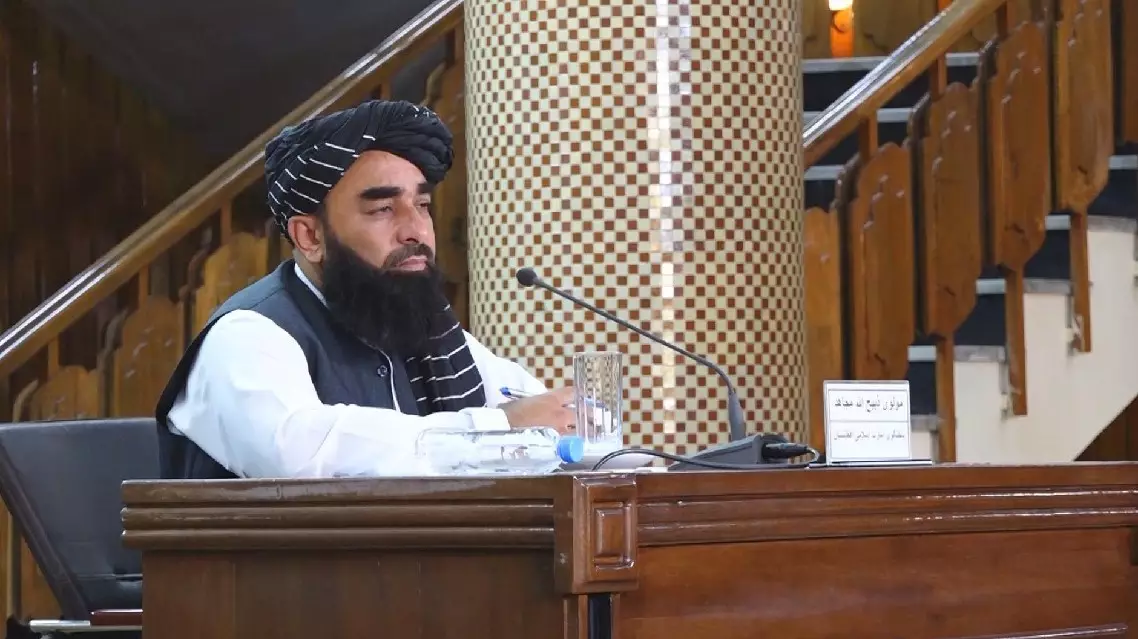
Delegation of Afghan gov't attends Doha meeting of special envoys




